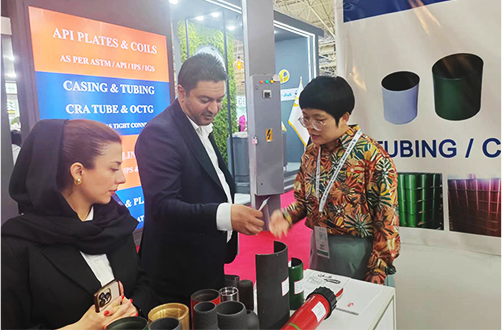- Afrikaans
- Albanian
- Amharic
- Arabic
- Armenian
- Azerbaijani
- Basque
- Belarusian
- Bengali
- Bosnian
- Bulgarian
- Catalan
- Cebuano
- Corsican
- Croatian
- Czech
- Danish
- Dutch
- English
- Esperanto
- Estonian
- Finnish
- French
- Frisian
- Galician
- Georgian
- German
- Greek
- Gujarati
- Haitian Creole
- hausa
- hawaiian
- Hebrew
- Hindi
- Miao
- Hungarian
- Icelandic
- igbo
- Indonesian
- irish
- Italian
- Japanese
- Javanese
- Kannada
- kazakh
- Khmer
- Rwandese
- Korean
- Kurdish
- Kyrgyz
- Lao
- Latin
- Latvian
- Lithuanian
- Luxembourgish
- Macedonian
- Malgashi
- Malay
- Malayalam
- Maltese
- Maori
- Marathi
- Mongolian
- Myanmar
- Nepali
- Norwegian
- Norwegian
- Occitan
- Pashto
- Persian
- Polish
- Portuguese
- Punjabi
- Romanian
- Russian
- Samoan
- Scottish Gaelic
- Serbian
- Sesotho
- Shona
- Sindhi
- Sinhala
- Slovak
- Slovenian
- Somali
- Spanish
- Sundanese
- Swahili
- Swedish
- Tagalog
- Tajik
- Tamil
- Tatar
- Telugu
- Thai
- Turkish
- Turkmen
- Ukrainian
- Urdu
- Uighur
- Uzbek
- Vietnamese
- Welsh
- Bantu
- Yiddish
- Yoruba
- Zulu
ss pipe coupling
Understanding SS Pipe Couplings A Comprehensive Guide
When it comes to piping systems in various industries, the selection of the right components is crucial for ensuring durability and efficiency. One of the essential fittings in these systems is the pipe coupling. Among the various types of couplings available, stainless steel (SS) pipe couplings have gained significant popularity owing to their robustness, resistance to corrosion, and ability to withstand high temperatures and pressures.
What Are SS Pipe Couplings?
SS pipe couplings are fittings used to connect two pipes together, allowing for a seamless and reliable flow of fluids or gases. They come in various shapes and sizes, catering to different applications and configurations. The term stainless steel refers to the alloy's composition, which typically includes iron, chromium, and nickel. This combination not only enhances the strength of the couplings but also provides significant resistance to oxidation and corrosion, making them ideal for use in harsh environments.
Types of SS Pipe Couplings
There are several types of SS pipe couplings, each serving a specific purpose
1. Straight Couplings These are the most common type, used to connect two pipes of equal diameter. They provide a straightforward and effective way to extend pipelines.
2. Reducing Couplings These couplings are used when connecting pipes of different diameters. They allow for a smooth transition from a larger pipe to a smaller one, ensuring minimal flow disruption.
3. Coupling Adapters These are designed to bridge different types of threaded or non-threaded pipes. They are particularly useful in systems that require connections between varying materials or sizes.
4. Swing and Fixed Couplings These specialized couplings are used in larger piping systems where the need for flexibility or movement might arise. Fixed couplings ensure a stable connection, while swing couplings allow for some degree of movement and are useful in applications that require it.
Benefits of Using SS Pipe Couplings
ss pipe coupling

The use of stainless steel pipe couplings comes with several advantages
- Corrosion Resistance One of the key benefits of SS pipe couplings is their ability to resist corrosion, making them suitable for applications in marine environments, chemical processing plants, and wastewater management systems.
- High Strength and Durability Stainless steel is known for its tensile strength. SS pipe couplings can withstand high pressure and temperature fluctuations, making them reliable for industrial applications.
- Longevity Due to their corrosion resistance and robust nature, stainless steel couplings often have a longer lifespan compared to their counterparts made from other materials. This translates to lower maintenance costs and reduced frequency of replacements.
- Versatility SS pipe couplings can be used in various applications, from residential plumbing to complex industrial piping systems. Their adaptability makes them a top choice for engineers and designers.
- Hygienic Properties In applications such as food and beverage processing, the non-reactive nature of stainless steel ensures that substances remain uncontaminated, contributing to safety and quality standards.
Installation and Maintenance
While SS pipe couplings are designed for ease of use, proper installation is key to their performance. It's vital to ensure that the pipes are cut straight and deburred before connecting them with couplings. Using the appropriate torque specifications when tightening union nuts or threaded ends can prevent leaks and ensure a secure fit.
Regular inspections of the couplings are also essential. Though stainless steel is highly durable, it is important to check for signs of wear and tear or potential corrosion, especially in extreme environments. If any issues are detected, prompt action can prevent more serious problems down the line.
Conclusion
SS pipe couplings represent a critical component in the reliability and efficiency of piping systems across various industries. With their corrosion resistance, strength, and versatility, they provide solutions that can accommodate a wide array of applications. Understanding their types, benefits, and maintenance is fundamental for anyone involved in the design or maintenance of piping systems, ensuring the longevity and functionality of critical infrastructure.
-
Tubing Pup Joints: Essential Components for Oil and Gas OperationsNewsJul.10,2025
-
Pup Joints: Essential Components for Reliable Drilling OperationsNewsJul.10,2025
-
Pipe Couplings: Connecting Your World EfficientlyNewsJul.10,2025
-
Mastering Oilfield Operations with Quality Tubing and CasingNewsJul.10,2025
-
High-Quality Casing Couplings for Every NeedNewsJul.10,2025
-
Boost Your Drilling Efficiency with Premium Crossover Tools & Seating NipplesNewsJul.10,2025







